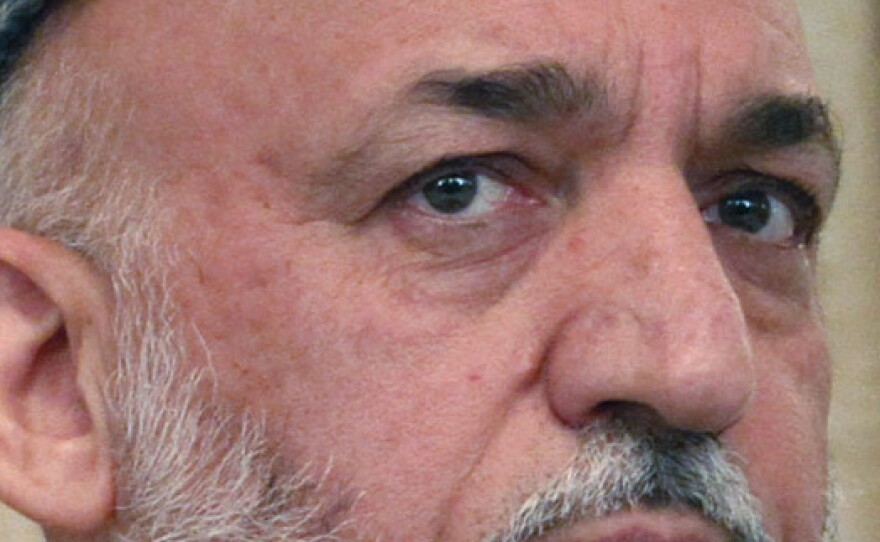In Afghanistan, there has been a test of wills in recent weeks between President Hamid Karzai and the international community. At issue is whether private security firms should be allowed to continue working in the country.
For nearly five years, Karzai has criticized the use of private security companies in Afghanistan and said they should be banned. These private firms help guard development and reconstruction projects around the country.
There are more than 50 registered private security firms that employ anywhere from 40,000 to 50,000 international and local guards. There are at least 50 additional firms that are unregistered, which the government wants to disband immediately.
Washington's Concerns
In mid-August, Karzai set a Dec. 15 deadline for all security firms to disband and turn in their weapons. The deadline prompted intense negotiations between the Karzai government and senior officials from the U.S. and other countries.
At one point, U.S. Secretary of State Hillary Clinton intervened and asked Karzai to reconsider. During another meeting on the issue, the Afghan president stormed out, according to people involved in the process.
At a news conference earlier this week, Karzai lashed out.
He said the heavily armed private security workers are destabilizing the country, harassing the public and undermining Afghanistan's own security forces.
But just days later, the president appeared to relent.
In a carefully worded statement, Karzai pushed back the deadline. He formed a committee that will look at each company on a case-by-case basis to decide if and for how long it can continue to operate, which essentially extended the deadline until at least mid-February.
The committee charged with overseeing the private security companies will issue its first report by Nov. 15.

The development was welcomed by Karl Eikenberry, the U.S. ambassador in Kabul. "In the spirit of cooperation and partnership, we're going to find ways to arrive at solutions that are going to provide all the entities, all the organizations that are working throughout Afghanistan for development and improvements in the country, that are going to be satisfactory," he said.
Who Will Provide Security?
Karzai's concession provides some breathing room for the registered private security firms, but no one here thinks the issue is going to go away.
Kaboora Security Services in Kabul employs around 500 people to guard development projects and supply convoys. Its director, Abdul Hakim, says his workers make good money. "The reason they join a private security company is because it's better, easier and has more benefits than joining the police or army," he said.
Karzai wants Afghan soldiers and police to take over the duties of private security firms once they are disbanded. Many international development agencies say Karzai's plan is a nonstarter because they have no confidence in the government's security forces.
Many of the large projects that employ private security firms are run by the U.S. Agency for International Development.
Laurent Saillard is the director of an umbrella group for nongovernmental organizations in Afghanistan. He says Karzai's decree won't affect scores of smaller development agencies that do not want -- or use -- any armed security. "Their approach is different," he said. "They work closely with the local communities, and that's how they build their security. That's how they operate."
Ashraf Ghani, an adviser to Karzai, says the U.S. is relying far too heavily on contractors and private security firms to achieve its goals. "Contracting out government and development [has] not worked," Ghani says. "A bunch of 'Beltway bandits' have become millionaires and billionaires. Afghanistan and the U.S. have become poorer for it."
Copyright 2022 NPR. To see more, visit https://www.npr.org. 9(MDAzMjM2NDYzMDEyMzc1Njk5NjAxNzY3OQ001))







